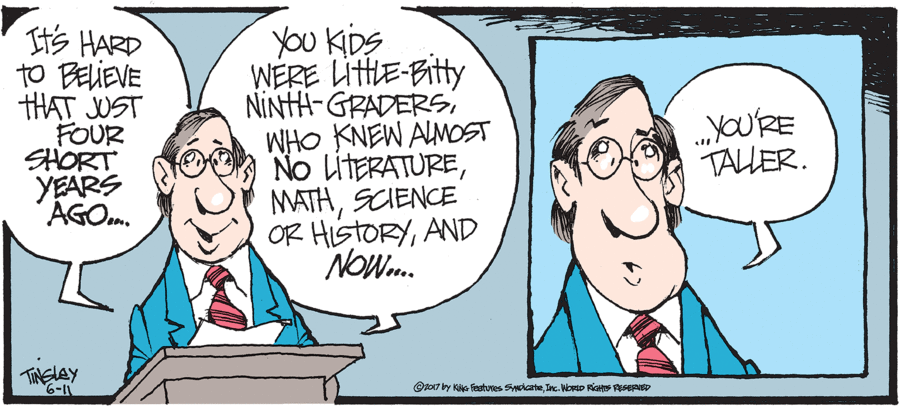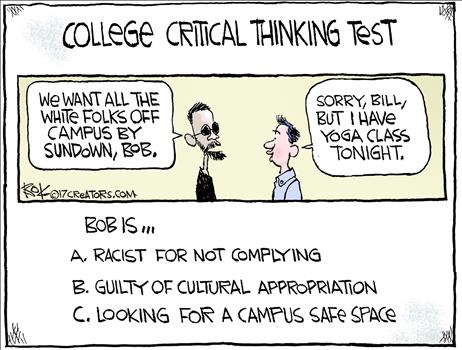You critique what you love. I love education; that’s why I worked hard to get a doctorate in history; that’s why I continue to gain more knowledge and insight with a wide range of reading interests; that’s why I teach at a university. Yet I critique education frequently in these posts because I’m alarmed at the dismal state of learning in this nation.
In particular, since I do teach at the college level, I’m dismayed by what a college degree means now. It’s so much less than it used to mean. I see students walk across the stage at graduation who couldn’t figure out how to pass quizzes in my basic American history survey courses. So many who end up in college just aren’t prepared to be there.
Of course, that the result of an education they did or didn’t receive prior to arriving on campus.
I don’t blame them, in most cases. And if students who are not really ready to be in college nevertheless shows a determination to learn, I’m right there with them. I want them to succeed; after all, I am an educator.
Once they are in college, however, another problem erupts all too often lately. What are they now getting out of their college education? Are they being introduced to Christian principles and morals? Well, not on most campuses anymore. How about at least an appreciation for what Western civilization has created, despite the follies and errors that have accompanied those achievements?
It’s always beneficial to learn from the follies and errors. As a history professor, I keep hoping that lessons from the past can correct wayward policies in our current society.
Alas (that sounds like a good, old-fashioned way of using words), all some students ever hear are diatribes against the past, especially a European-American-centered past. Those Westerners did everything wrong, you see, and we must rebel against it all.
You, as parents, get to pay for this indoctrination. There might be an alternative:
There are so many horrific examples of where we are in higher education that I could pick and choose what to highlight. The most recent one, though, hails from the state of Washington at an institution of supposed higher learning called Evergreen State College near Olympia.
Evergreen, from what I read, began in the 1970s as an “experimental” college. The timing of its origins, as well as the word experimental, are clues to the worldview offered at this place.
Earlier this month, students staged an event where they told white students and white faculty that they should stay away from campus for a day. Apparently, that was supposed to be a teaching moment for how minorities feel marginalized.
One biology professor, Bret Weinstein, dared to criticize this advanced way of thinking. Keep in mind that Weinstein is a liberal/progressive himself. He just thought this was absurd.
The result? Weinstein was castigated for his unenlightened thinking, mobs took over the campus, property was destroyed, and the college had to close its doors for three days due to all the death threats.
This is higher education?
An anomaly, you ask? Not all secular institutions of presumed higher education have gone this far, but the worldview that led to this fiasco dominates most university campuses today.
Try being an open conservative on a secular campus and see what happens. Try being an evangelical Christian on those same campuses and see how you are treated.
But if you are an ardent Marxist, a militant homosexual, an angry feminist, or a radical environmentalist who believes the ecology is more important than people—well, then you fit in nicely.
I’m simply trying to do my part to help my students examine all things through a Biblical lens. I’m hoping they may provide some balance to the dominant worldview.



